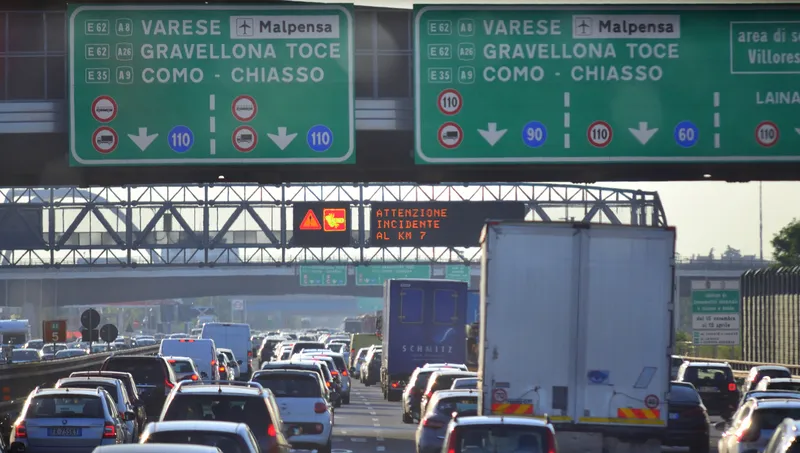Inrix, a leading international provider of traffic information and intelligent driver services, has released its latest traffic scorecard which shows that, among the 13 European nations analysed, the countries impacted the most by the European debt crisis mirror those with the largest drops in traffic congestion. Portugal (-49%), Ireland (-25%), Spain (-15%) and Italy (-12%) were among those with the largest declines last year. Despite being considered the strongest European economies, troubles across the E
June 25, 2012
Read time: 2 mins
RSS163 Inrix, a leading international provider of traffic information and intelligent driver services, has released its latest traffic scorecard which shows that, among the 13 European nations analysed, the countries impacted the most by the European debt crisis mirror those with the largest drops in traffic congestion. Portugal (-49%), Ireland (-25%), Spain (-15%) and Italy (-12%) were among those with the largest declines last year. Despite being considered the strongest European economies, troubles across the Eurozone fuelled declines in Germany (-8%), Netherlands (-7%) and Belgium (-3%). In comparing 2011 to 2010, France showed change of less than 1%.
Analysis of traffic congestion in the first five months of 2012 shows even further declines. With France showing a three per cent decline, the drop in traffic congestion extended from eight to nine of the 13 European countries analysed in the report. By comparison, the strength of Germany's economy fuelled by modest employment growth (+1.3 per cent) resulted in a six per cent increase in traffic congestion in the first five months of this year.
According to the Inrix index, Belgium heads Europe's top 10 worst countries for traffic congestion followed by the Netherlands, Italy, UK, Spain, France, Germany, Austria, Portugal, Switzerland. Luxembourg, Hungary and Ireland complete the list respectively among the 13 European countries analysed.
The Inrix Traffic Scorecard is based on analysis of billions of raw data points from the company’s own historical traffic database of approximately 100 million vehicles traveling the roads everyday including taxis, airport shuttles, service delivery vans, long haul trucks as well as consumer vehicles and mobile devices. Each data report from these GPS-equipped vehicles and devices includes the speed, location and heading of a particular vehicle at a reported date and time. In creating the scorecard, Inrix analyses information for more than one million kilometres of motorways and secondary roads in Europe and more than one million miles of roads in North America during every hour of the day to generate the congestion analyses, covering the largest metropolitan areas in 15 countries.
Analysis of traffic congestion in the first five months of 2012 shows even further declines. With France showing a three per cent decline, the drop in traffic congestion extended from eight to nine of the 13 European countries analysed in the report. By comparison, the strength of Germany's economy fuelled by modest employment growth (+1.3 per cent) resulted in a six per cent increase in traffic congestion in the first five months of this year.
According to the Inrix index, Belgium heads Europe's top 10 worst countries for traffic congestion followed by the Netherlands, Italy, UK, Spain, France, Germany, Austria, Portugal, Switzerland. Luxembourg, Hungary and Ireland complete the list respectively among the 13 European countries analysed.
The Inrix Traffic Scorecard is based on analysis of billions of raw data points from the company’s own historical traffic database of approximately 100 million vehicles traveling the roads everyday including taxis, airport shuttles, service delivery vans, long haul trucks as well as consumer vehicles and mobile devices. Each data report from these GPS-equipped vehicles and devices includes the speed, location and heading of a particular vehicle at a reported date and time. In creating the scorecard, Inrix analyses information for more than one million kilometres of motorways and secondary roads in Europe and more than one million miles of roads in North America during every hour of the day to generate the congestion analyses, covering the largest metropolitan areas in 15 countries.








